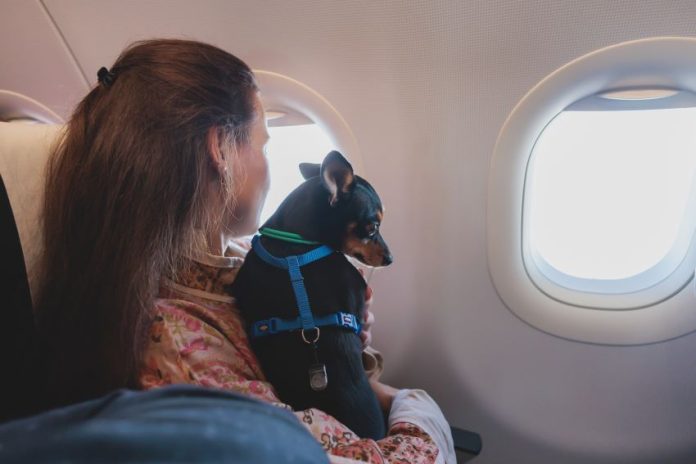With more and more people traveling back and forth with their pets between the United States, Canada and Mexico — in addition to the increasing number of expats from other nationalities that bring their pets with them — we’ve created this guide to help you discover the types of pets that are allowed to enter the country, vaccinations required for entry, fees charged by the government, and all essential regulations to bring your pets with you.
While this guide answers the essential questions to bring your pet into the country by land, sea or air, be sure to always check the government’s website or contact your airline or the Mexican authority directly for additional and updated information (all relevant links hyperlinked below).
Which animals are considered pets in Mexico?
According to the Animal Protection Law, domestic animals are those raised in the company of humans and under their care. However, regulation to bring pets into Mexico currently only applies for cats and dogs.
If you wish to bring into the country other types of domestic animals, click here.
If you wish to travel with an emotional support animal, check any additional requirements directly with your airline.
Is there a fee to enter pets in Mexico?
Entering pets into the country is free of charge unless you’re traveling with 3 or more pets.
Other expenses you need to consider are those applied by the airline of your choice.
What documents and vaccinations are required for cats and dogs to cross the border?
Good news for U.S. residents: It is no longer necessary to have a health certificate for dogs and cats when entering Mexico. You can take your pets to the border without any documentation, but they will be inspected by the National Agri-Food Health, Safety and Quality Service (Senasica) upon arrival. For further guidance, please refer to the instructions on this page.
If you travel from any other country, you must present the following:
- Certificate of Good Health (Certificado Zoosanitario de Exportación) issued by a veterinarian within 15 days before the trip.
- Name and address of the exporter and importer, as well as the identification data of the pet and its final destination.
- An updated Vaccination Card including the following mandatory vaccines: Canine parvovirus, distemper, canine hepatitis, and rabies. Non-core vaccines (Bordetella and the Leptospirosis bacteria) are given based on the dog’s risk of exposure (pets under 3 months of age are exempt from a vaccination card).
- Proof of deworming within the last 6 months.
Once you have submitted all the necessary documents, your pet will undergo a physical examination by OIA officials.
The officials will verify that the pet’s physical description mentioned in the Health Certificate matches its actual physical characteristics, such as sex, breed and color. Additionally, they will inspect the pet’s health status and ensure that it is free from external parasites.
Can I bring my pet’s food, toys, and accessories?
Yes, provided you comply with the following requirements.
Food:
These are the products for animals allowed into the country according to the Senasica:
![]()
Toys and accessories:
![]()
The import of bedding, implements, accessories, toys, treats, or prizes containing animal ingredients is prohibited and will be removed and destroyed if they are discovered.
However, your pet may enter with its collar or leash in a clean conveyor or container.
Can I send my pet as cargo?
Yes. If you send your pet as a cargo, check the requirements on the airline of your choice and consider using the services of a customs agent (agente aduanal) for its release before Customs. While in some countries a “customs agent” refers to a government representative, in Mexico an agente aduanal usually means a professional who specializes in helping clients navigate the customs process.
Can I bring my pet if it’s undergoing medical treatment?
Yes.
If your pet is undergoing medical treatment or can’t be vaccinated against rabies, then upon arrival to Mexico, you need to present a medical prescription on letterhead with the number of your Professional Certificate or equivalent. This prescription should explain the condition of your pet and its treatment so that you can enter its medicines.
You can attach a photocopy of the certificate along with the prescription.
For additional information, click here.
What happens if I arrive in Mexico without the required documentation?
If you don’t possess a Certificate of Good Health or a Vaccination Card, you’ll need to seek out the services of a private veterinarian of your choice in Mexico. The veterinarian must administer the necessary treatments and issue the Certificate of Good Health.
After an evaluation, official personnel or an Authorized Third-Party Specialist (TEA) can confirm the good state of health.
For additional information, click here.
What is the Frequent Traveler Program?
Since Feb. 2023, it is easier to frequently travel to Mexico with your pet.
This program (Programa Mascota Viajero Frecuente) aims to speed up the review and inspection of your pet at Agricultural Health Inspection Offices (OISA) located at entry points into the country.
By enrolling your pet in the Pet Frequent Traveler Program (PFTP), you’ll only need to present a Certificate of Good Health once every six months.
To register, you must upload to the Tourism Certification System your pet’s Certificate of Good Health, Vaccination Card, and Veterinarian Certificate.
For any additional information or queries, please contact the OISA or click here.
Gabriela Solís is a Mexican lawyer based in Dubai turned full-time writer. She covers business, culture, lifestyle and travel for Mexico News Daily. You can follow her life in Dubai in her blog Dunas y Palmeras.
